Siahuk, lying on the floor of his simple house, is moaning with pain in his right hand, which is the result of a terrifying struggle.
Just two days ago, it was one afternoon in that hot August month, when this slender 70-year-old shepherd went to get water from a pond, and was caught by a rhinoceros. Crocodiles are called rhinos in the Balochistan region of Iran.
This incident happened two years ago, but his shock and fear are still visible in his eyes. “I didn’t see him coming at all,” he says.
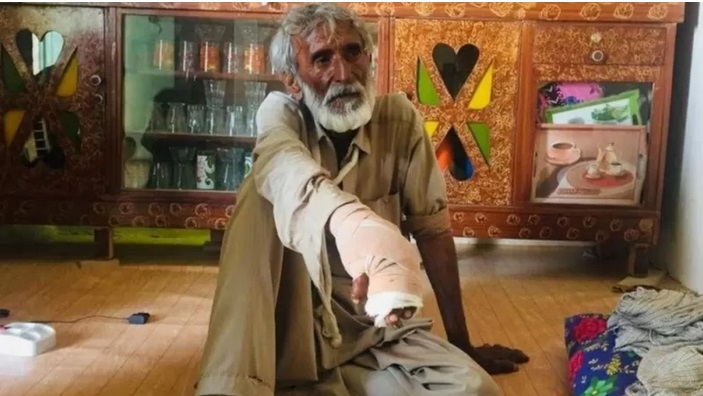
He tells that he somehow managed to survive when he stuck a plastic water bottle between the jaws of the crocodile.
But by then so much blood had drained that Siahuk lay unconscious for half an hour.
This incident came to know when his sheep reached his small village Dombak without him and then people went out in search of him.
dangerous life
This incident of conflict with crocodile is not alone. This has happened to many people in Balochistan, mostly children.
Emotional headlines often appear in the Iranian media about Baluchi children, and disappear very quickly.
In 2016, Alireza, a nine-year-old boy, was swallowed by a crocodile.
In July of 2019, 10 years of wind kept going right hand. She had gone to fetch water for washing clothes, when a crocodile started dragging her into the water, her companions again pulled her from the other side, and somehow she was able to escape.
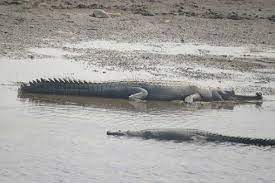
Why are crocodiles attacking
These attacks have come at a time when Iran has been battling a severe water shortage for a long time, and in such a situation, natural water sources of water are drying up where crocodiles used to eat fish, etc.
In such a situation, the hungry crocodiles either consider the humans moving towards the water as their prey, or the elements trying to infiltrate their decreasing area.
The thick-nosed rhinoceros or crocodiles spread across Iran and the Indian subcontinent have been placed in the “vulnerable” category by the International Union for Conservation of Nature, an organization for the conservation of endangered species.
There are about 400 crocodiles in Iran. Iran’s environment department says it is doing its best to maintain harmony between them and the local population.
But despite several incidents in recent years, there does not appear to be any concrete indication that what the government is saying is really having any effect.

In Iran, the Bahu-Kalat river is the main habitat of crocodiles, there is no warning message about their danger around it.
In the absence of a clear policy of the government, volunteers are coming forward.
Going beyond Dombak, there is a village of Bahu-Kalat, which is named after this river. There Malek Dinar has been living with crocodiles for years.
He says, “I finished my plantation to collect water for these crocodiles.” Showing his garden, he explains that there were once bananas, mangoes and lemons.
Now they often put chicken in the river for the crocodiles. He says that due to the scorching heat, the water reduced and there was a shortage of fish and frogs too.
“Come-come” – Calling this, Malik calls out to the crocodiles. In the blink of an eye, two crocodiles appear and wait to get the chicken from their familiar white bucket.
water shortage
The water crisis in the Balochistan region of Iran is no different.
There were violent protests in July in the oil-rich southwestern province of Khuzestan.
And in November, riot police had to be called in to control protesters in the city of Isfahan in central Iran.
While global warming is showing its brutal effect in Iran, decades of water mismanagement in Iran could be more troublesome for Balochistan.
“There’s no water here,” says Malek-Naz, 35, who is cleaning clothes in the open at the Sheer-Mohammed market.
Her husband Usman tells that this area is backward, they go to neighboring Pakistan and sell petrol where they get higher price.
He says, “This is a dangerous job, but what to do, there is no work here.”
The work is really dangerous. In February this year, Iranian border guards opened fire on some “oil smugglers”, killing at least 10 people.
Usman says, “Knowing they do not pay attention to our difficulties. Trust us, we are not enemies of this country.”
There are many other people like him, there is no one to see the Baloch people in Iran.
Despite this, Osman and many of the people there feel that water scarcity is a bigger problem than employment, due to which crocodiles have started fighting with those who once lived with them.
Usman’s nephew Nausherwan says, “We don’t want anything from the government. We have no hope from them that they will give us a job by decorating a plate.
Balochi people can survive by eating bread in the desert. But water is necessary for survival. We cannot live without it, and who can live without water?”
sarbas nazar BBC news

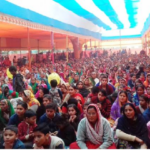
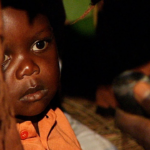


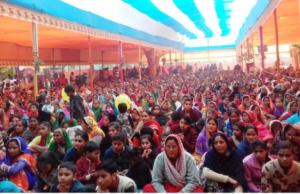
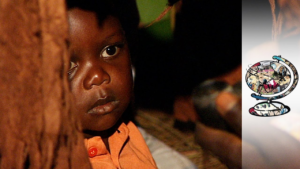
More Stories
Is superstition making children sacrifice?
Who is the real king of Middle East Gulf countries?
Why are right-wing parties winning the European Union elections?